Embracing the Sabbatical: Dr. Alison Buttenheim’s Adventures Explored through the Lens of Behavioral Science
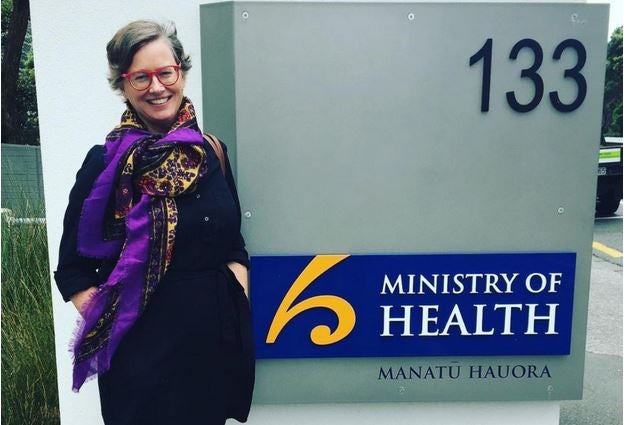
I was very fortunate to spend the 2022-23 academic year on sabbatical with my husband Paul Saint-Amour (Professor of English in Penn’s School Arts & Sciences). Our multi-country adventure included stays in Oregon, New Zealand, London, and Oxford. While much of my time was devoted to ongoing research projects and co-chairing the National Academies Consensus Committee on Behavioral Economics and Policy Impact, there was also time to build new collaborations with the Ministry of Health in New Zealand and the Institute of Global Health Innovation at Imperial College London. I even did some intensive training in design thinking and design facilitation (and fair warning to anyone who collaborates with me: this is my new obsession!) As always, behavioral science was the main lens through which I viewed my adventures. Here are some highlights of the year, with a BeSci twist:
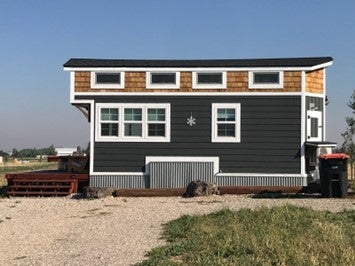
Cross-country drive
Relevant behavioral science principle: Reference dependence
In late August 2022, we departed Philly for a 13-day cross-country drive. I love to organize travel around a theme or a stunt, so we decided to stay only in Airbnb “tiny homes” – purpose-built or renovated small spaces typically less than 400 square feet. Our tiny home stays included a shipping container in Lincoln, Nebraska; a vintage wood trailer in Bend, Oregon; and a renovated garage in Boise, Idaho; with the nicest bathroom I’ve ever seen. These tiny home stays have definitely reset my reference point for an appropriate amount of living space. I’m ready to go tiny!
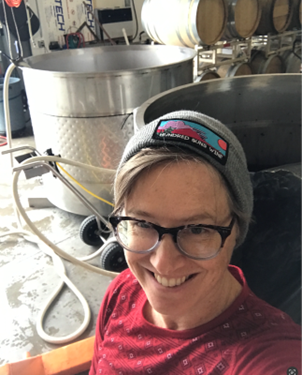
Oregon wine harvest
Relevant behavioral science principle: Dunning-Kruger effect
We spent September and October as harvest interns at Hundred Suns, my in-laws’ Willamette Valley winery. I acquired many new skills at Hundred Suns, including power washing, foot treading (yes, they really do that!), and winery chemistry—running multiple lab tests on the fermenters every morning. My internship was a great example of the Dunning-Kruger effect in action: When we arrived in early September, my actual knowledge about winemaking was minimal, but I thought I was an expert. By late October, with way more experience and knowledge under my belt, my perceived expertise and confidence were appropriately recalibrated downward!
Aotearoa/New Zealand
Relevant behavioral science principles: Overoptimism & base rate biases
Like many folks, I’ve had New Zealand on my travel bucket list for a long time. When Paul got an invitation to a conference in Auckland in December 2022, we built a 5-week trip around that anchor, starting at the southern end of the South Island at the University of Otago in Dunedin in early November, and ending up in Auckland at the northern end of the North Island in mid-December – the summer solstice! Highlights included Milford Sound, Lake Tekapo, kayaking in Abel Tasman National Park, the Waitomo Caves, and Hobbiton (no, not kidding). I had the chance to meet with multiple teams at the Manatau Hauora (Ministry of Health) in Wellington to discuss behavioral science approaches to COVID-19 vaccine and Mpox vaccine promotion. I did not, sadly, have the chance to meet with former Prime Minister Jacinda Ardern. I had (mis-)calculated the probability of fan-girling with the PM based on 1) my strong desire to do so; 2) my perception of Wellington as a small town; and 3) a friend of a friend mentioning that they had seen Ardern once at a local coffee shop. Fortunately, missing out on a Jacinda sighting in no way detracted from an otherwise amazing trip.
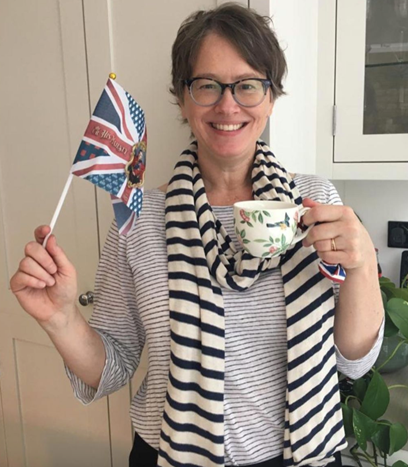
London
Relevant behavioral science principles: Choice architecture & mental models
After the new year, we headed to London for a four-month stay. Knowing our time there would rush by, I deliberately set up our living environment and our routines to make us feel like locals. From stocking the fridge with sticky toffee pudding and custard to mastering the London tube map, we quickly adopted new mental models for London life. I was honored to take part in planning discussions for the 100th anniversary of Fleming’s discovery of penicillin with the Institute of Global Health Innovation at Imperial College London, which will include several initiatives around changing public, patient, and provider behavior to combat antimicrobial resistance. Our last full day in London was the coronation of King Charles III, a fascinating cultural moment.
Oxford
Relevant behavioral science principles: Peak-end rule
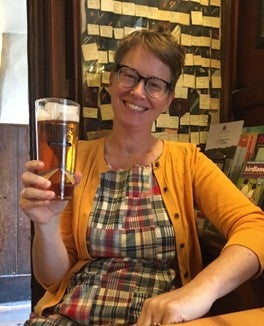
The sabbatical year wrapped up in Oxford, where I was a Visiting Professor at The Leverhulme Center for Demographic Sciences and Nuffield College. Our two weeks in Oxford were objectively delightful, but also got a peak-end rule boost. Our time-limited stay created some urgency to hit as many different Oxford pubs as possible, resulting in the “Pub of the Day” plan. We managed to sink a pint at 11 pubs in 16 days, a record we will try to beat on our next visit.
I’m so grateful to have had the opportunity to take this sabbatical and look forward to reconnecting with the CHIBE community this year to share new skills and insights.
Alison Buttenheim, PhD, MBA, is CHIBE’s Scientific Director, the Patricia Bleznak Silverstein and Howard A. Silverstein Endowed Term Chair in Global Women’s Health, and Professor of Nursing in the Department of Family and Community Health at University of Pennsylvania School of Nursing.